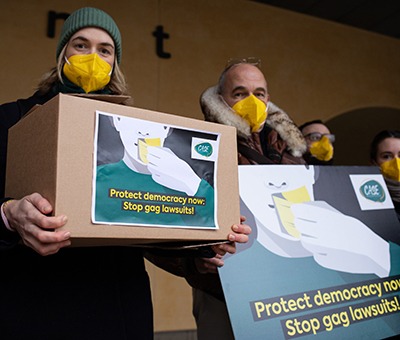In theory, justice is blind. In practice, it’s just really good at ignoring poor people. The Legal Services Corporation reports that over 80% of low-income individuals in the U.S. receive inadequate or no legal help when they need it. Legal aid is underfunded, overburdened, and treated like a charity case rather than a fundamental right. Meanwhile, corporations have armies of lawyers on retainer, ready to pounce on loopholes faster than a cat on a laser pointer.
And it’s not just about money; it’s about complexity. The legal system is so convoluted that understanding your basic rights often requires a law degree—or at least the stamina to read documents written in what can only be described as “English, but make it incomprehensible.” Legal language is deliberately opaque, designed not to clarify but to obscure. As George Orwell warned in Politics and the English Language, language can be wielded as a tool of control, and nowhere is this more evident than in legal jargon.
But perhaps the most glaring issue is how the legal system perpetuates inequality. In The New Jim Crow, Michelle Alexander exposes how the U.S. legal system has been weaponized to maintain racial and economic hierarchies, particularly through mass incarceration. Policies like mandatory minimums, three-strikes laws, and the war on drugs disproportionately target marginalized communities, creating a cycle of disenfranchisement that’s as effective as it is insidious.
Even civil law, which supposedly deals with non-criminal matters, is riddled with inequities. Consider the phenomenon of Strategic Lawsuits Against Public Participation (SLAPPs)—lawsuits designed not to win in court, but to intimidate and silence critics through sheer financial pressure. This isn’t justice; it’s legalized bullying.
Meanwhile, corporate law firms like Jones Day exemplify how the system is weaponized for profit. The firm has built a reputation for representing the most ethically dubious clients—Big Tobacco, Big Oil, Big Tech, and even the Bin Laden family. According to a report by the Revolving Door Project and People’s Parity Project, Jones Day is also notorious for anti-union work, earning the moniker of the “go-to for media executives facing union drives.” Internally, the firm is plagued by allegations of racism, gender discrimination, and what employees describe as an “endemic culture of sexual inappropriateness.”
Beyond their client roster, many corporate law firms exploit the “revolving door” between government and private practice. Former officials transition seamlessly from regulating industries to defending them, using insider knowledge to dismantle protections meant to serve the public. This cycle erodes trust in the law, transforming it from a public good into a corporate weapon.
Other countries handle legal equity differently. Most nations follow the “loser pays” principle, where the party that loses a case covers both sides’ legal fees. This discourages frivolous lawsuits and prevents wealthier litigants from weaponizing the courts to bankrupt opponents. In the United Kingdom, Canada, and Germany, this system creates a more balanced playing field, ensuring that justice isn’t determined by who can afford to drag out litigation the longest.
Meanwhile, the legal profession itself remains a fortress of elitism. Law school tuition is astronomical, ensuring that the profession remains dominated by the privileged. Diversity initiatives exist, but they often feel like window dressing on a system fundamentally designed to protect the status quo. As Derrick Bell argued in Faces at the Bottom of the Well, true justice requires not just diversity within oppressive systems but a reimagining of those systems altogether.
So, what’s the alternative? Legal systems that are accessible, transparent, and designed to serve people rather than profit. Consider the concept of community-based justice in Indigenous cultures, where conflict resolution focuses on restoration rather than punishment. The Navajo Nation’s peacemaking courts, for example, emphasize dialogue, reconciliation, and community involvement—principles that Western legal systems could learn from if they weren’t so busy congratulating themselves on their own complexity.
Even within traditional legal systems, there are models worth emulating. The Scandinavian approach to criminal justice prioritizes rehabilitation over retribution. Norway’s prison system, often cited as the most humane in the world, focuses on restoring dignity and preparing individuals for reintegration into society. Their recidivism rates are among the lowest globally—not because they’re soft on crime, but because they understand that punishment without purpose is just cruelty.
And then there’s technology. While tech often exacerbates inequality, it also holds potential for democratizing legal access. Online dispute resolution platforms, legal chatbots, and open-source legal databases can help bridge the gap—provided they’re designed with equity in mind and not just as another profit stream for tech companies.
Justice is not a luxury. It’s time to dismantle the legal fortress built by corporate interests and restore the law to its true purpose: serving the people.
Therefore, under Folklaw:
The legal system shall be restructured to prioritize accessibility, equity, and accountability. Legal education will be integrated into public schooling, ensuring that all citizens understand their rights and responsibilities from an early age.
Public legal services will be fully funded and universally available, with simplified procedures that eliminate unnecessary complexity. Judicial appointments will require community oversight, with term limits to prevent the entrenchment of power.
Corporate law firms will face strict transparency requirements, and firms with documented patterns of unethical behavior shall be barred from receiving government contracts or engaging in public interest lobbying.
The “loser pays” principle shall be adopted, ensuring that those who initiate frivolous lawsuits bear the financial burden rather than their targets.
Legal language will be standardized for clarity, and all laws will be publicly accessible in plain language formats.






Discussions
There are no discussions yet.